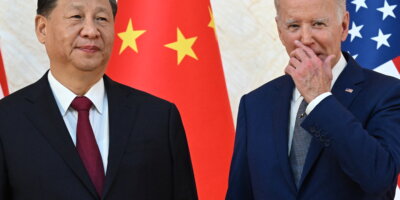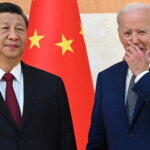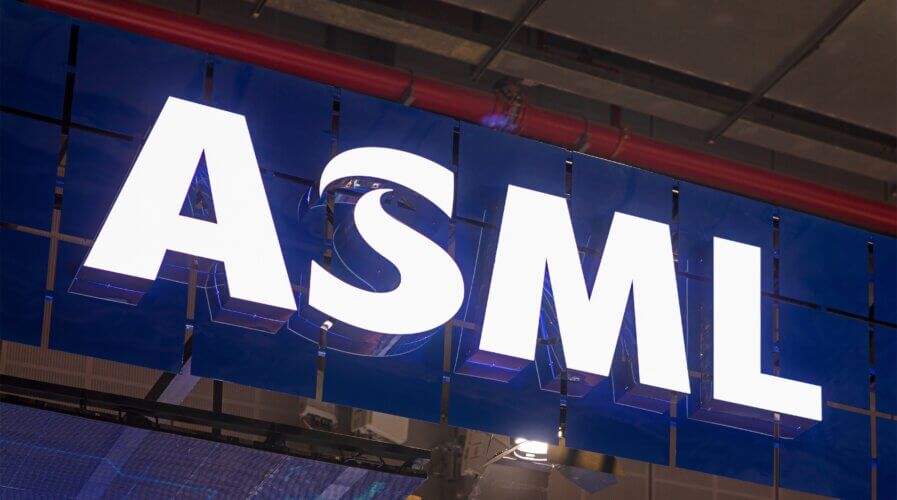
Under the new export control rules, ASML can only ship those gears until the end of this year, and that too with a license.Source: Shutterstock
The Netherlands has started limiting chip gear exports to China
- Chipmakers from China have been rushing to buy up vital equipment before the new rules take effect, with imports from the Netherlands this year having already surpassed the total for all of 2022.
- Starting September 1, the Netherlands will further restrict access to deep ultraviolet lithography systems.
- Under the new export control rules, ASML can only ship those gears until the end of this year, and that too with a license.
At the end of June this year, the Netherlands issued an unprecedented export control restricting ASML Holding NV’s chip-making machines from being sent to China. Although the export control, effective September 1, does not explicitly mention China, the rules state that ASML – the only company in the world that makes highly sophisticated chip making machines – will have to apply for a license to ship its advanced deep ultraviolet lithography, or DUV, systems to China.
The move by the Dutch government was widely seen as an alignment with the US and Japan and is designed to restrict the shipments of three models of ASML machines to China, Bloomberg News reported.
ASML has been barred from selling EUV lithography machines to China since 2019, but it had been able to sell DUV systems until this year, amid escalating pressure from the US.
With the latest rules coming into effect, Chinese chip foundries have four more months to import ASML’s most advanced immersion deep ultraviolet (DUV) lithography system, Twinscan NXT:2000i, with approval from The Hague. That is, systems capable of making chips at the 5-nanometre process or more advanced.
The Dutch company will be able to continue shipments of some advanced machines this year, but on January 1, 2024, “it is unlikely we will receive export licenses for these systems for shipment to domestic Chinese customers,” it said on September 1. So far, China’s imports of Dutch lithography machines have surged this year, with the first seven months already surpassing ASML’s previous forecast for 2023 sales to China.
From January to July, Chinese imports of Dutch-made lithography machines, nearly all from ASML, grew 64.8% year-on-year to US$2.58 billion, Chinese semiconductor industry consultancy JW Insights said in a report published a week ago, citing China customs data. In January, ASML projected that its sales to China this year would remain steady at around 2.2 billion euros (US$2.36 billion), or 14% of its total annual revenue.
In July alone, China imported US$626 million worth of lithography machines from the Netherlands, nearly eight times more than it did in the same month last year, according to the report. The main reason for this spike is that ASML has a near monopoly on the world’s most advanced lithography machines, which are required to produce cutting-edge chips.
How will the chip gear export control impact China and ASML?
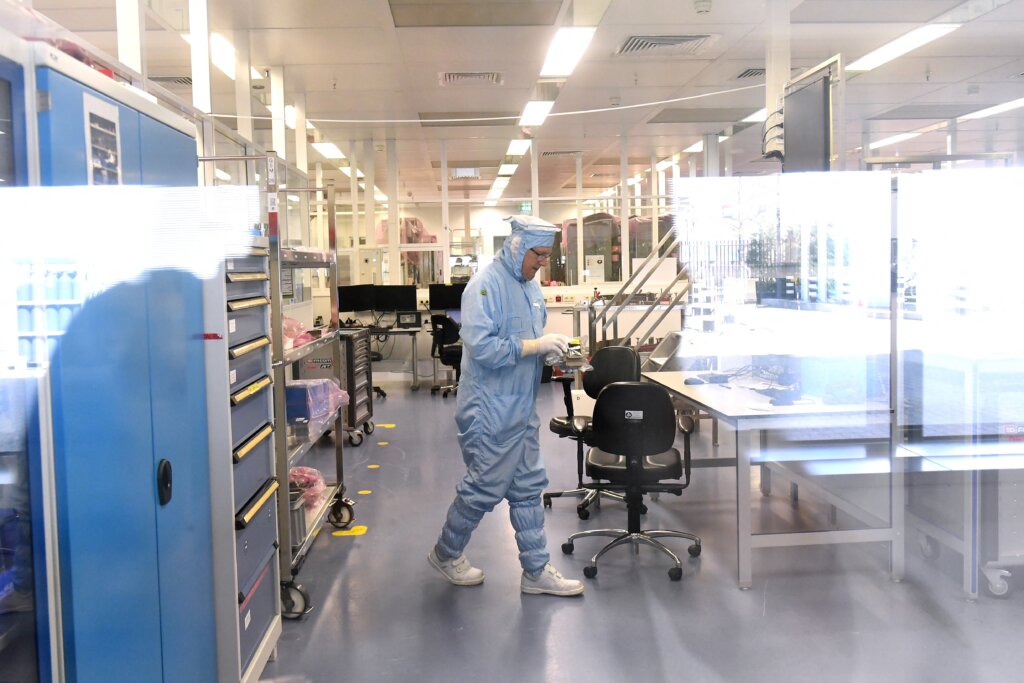
An employee make his way in a laboratory at ASML, a Dutch company which is currently the largest supplier in the world of semiconductor manufacturing machines via photolithography systems in Veldhoven on April 17, 2018. (Photo by EMMANUEL DUNAND / AFP)
First and foremost, ASML is not only the largest European tech firm by market valuation but also the world’s only manufacturer of specific lithography systems, which are needed to print patterns of transistors on silicon wafers. That is why the Biden administration has been counting on the Netherlands to help stop China from further developing its chip industry and advancing its military capabilities.
Despite China’s accelerated drive to use more locally produced tools and critical components, semiconductor equipment procured in-country accounts for just 15% of the total at Chinese foundries, a top executive said at an industry conference this month. The other 85% of machines come from the US, the Netherlands, and Japan.
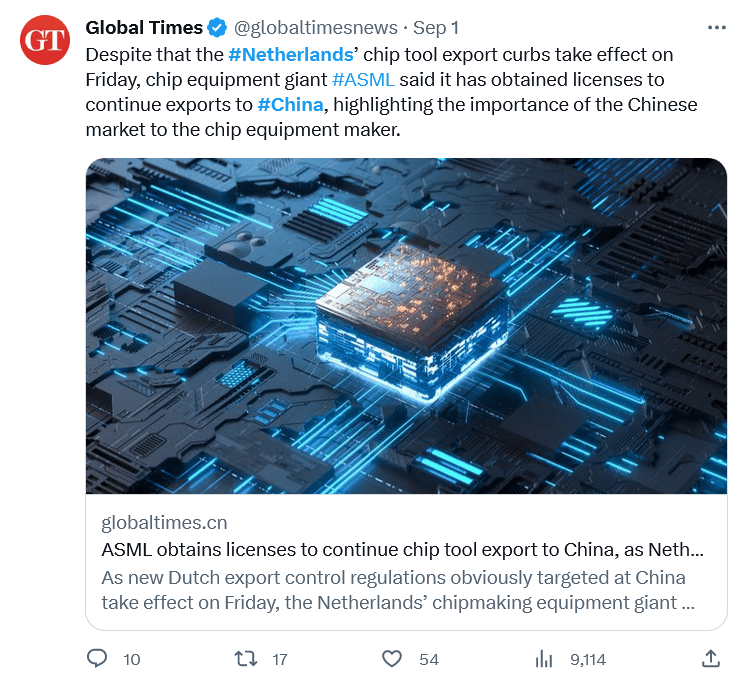
ASML says it has received licenses to keep trading with China.
ASML has also been downplaying the potential impact on annual sales this year after beating estimates in the first half. It said in a prior statement that the measures will “not have a material effect on our financial outlook” for 2023 or in the longer term.
China has, however, warned the Dutch government that there would be consequences if the government blocked the export of high-end chip making equipment to China.
Separately, since July, companies in Japan must obtain a license before they can sell 23 types of chip making equipment to China. Tokyo announced the controls in May, prompting the state-backed China Semiconductor Industry Association to warn of countermeasures.
READ MORE
- Strategies for Democratizing GenAI
- The criticality of endpoint management in cybersecurity and operations
- Ethical AI: The renewed importance of safeguarding data and customer privacy in Generative AI applications
- How Japan balances AI-driven opportunities with cybersecurity needs
- Deploying SASE: Benchmarking your approach

